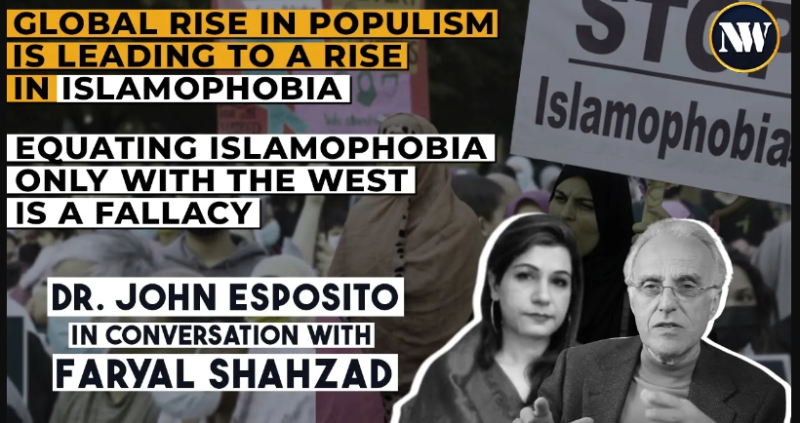One form of discrimination that has gained significant traction around the world is Islamophobia – a toxic blend of bias, suspicion, and outright hatred towards Muslims and the Islamic faith. Addressing this pervasive issue requires a robust commitment to political and religious pluralism, as well as a collective effort to counter all forms of religious discrimination. As we enter the holy month of Ramadan, a time of reflection and unity for Muslims worldwide, it is crucial to examine the root causes of Islamophobia, its consequences, and the steps that individuals and societies can take to combat it.
Islamophobia is not a new phenomenon; it has historical and contemporary roots that have contributed to its persistence. The events of September 11, 2001, and the subsequent "war on terror" heightened tensions between the West and the Muslim world, feeding into negative stereotypes and generalizations about Muslims. Additionally, statements made by influential figures, such as former President Donald Trump, have contributed to the normalization of Islamophobic rhetoric. The infamous assertion that "Islam hates us" perpetuates a skewed narrative that unfairly paints an entire religious group with a broad brush.
Furthermore, political agendas and media bias have exacerbated Islamophobia. The biased portrayal of Muslims in the media often focuses on extremism and terrorism, ignoring the vast majority of Muslims who lead peaceful lives. This skewed representation reinforces stereotypes and creates a climate of fear and suspicion.
The consequences of Islamophobia are far-reaching and detrimental to individuals, communities, and societies at large. Muslims often face discrimination in various aspects of their lives, from employment and education to social interactions and public spaces. Hate crimes against Muslims, including verbal and physical attacks, have become disturbingly common, leaving individuals traumatized and marginalized.
It is important to note that Islamophobia also intersects with other forms of discrimination. Muslim women, for instance, experience a triple burden of bias due to their gender, ethnicity, and faith. The hijab, a visible symbol of Islamic identity, becomes a target for discrimination and stigmatization, restricting the freedom of Muslim women to express their religious beliefs.
Critics have pointed out instances of double standards and selective reprehension when it comes to addressing Islamophobia. While countries and leaders are quick to condemn anti-Muslim sentiment in the West, they may remain silent or complicit in the face of discrimination against Muslims within their own borders or allied nations. This selective approach undermines the fight against Islamophobia and hinders the collective effort to promote religious equality and human rights.
For instance, some Muslim-majority countries have been criticized for neglecting the plight of Uighur Muslims in China or turning a blind eye to the persecution of religious minorities. Similarly, accusations have been made against Pakistan for not taking strong action against the alleged forced conversion of Hindu girls and the exploitation of blasphemy laws against religious minorities. It is essential to hold all nations accountable for upholding the principles of religious freedom and equality.
Combatting Islamophobia requires a comprehensive and multi-faceted approach. At its core, promoting political and religious pluralism is pivotal in creating an inclusive and equitable society. Governments must actively work to ensure that all citizens, regardless of their faith, have equal rights and opportunities. This includes addressing discriminatory policies, enacting legislation that safeguards religious freedom, and holding individuals accountable for hate speech and hate crimes.
Furthermore, religious leaders, scholars, and institutions have a crucial role to play in promoting interfaith dialogue and understanding. By fostering relationships between different religious communities, misconceptions can be dispelled, and bonds of solidarity can be forged. Religious leaders should publicly denounce hate speech and actively work to challenge negative stereotypes about other faiths.
Educational institutions also play a pivotal role in countering Islamophobia. A curriculum that promotes cultural competence and interfaith dialogue can help break down barriers of misunderstanding and prejudice. By teaching tolerance and respect from an early age, societies can lay the foundation for a more harmonious and inclusive future.

